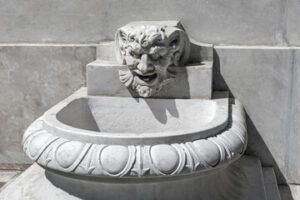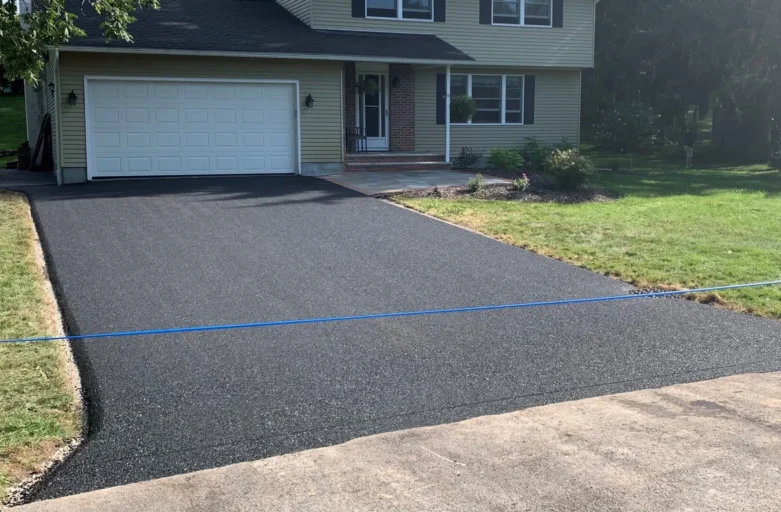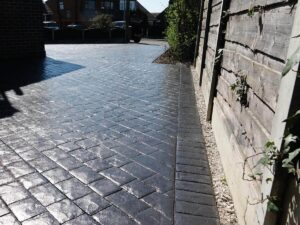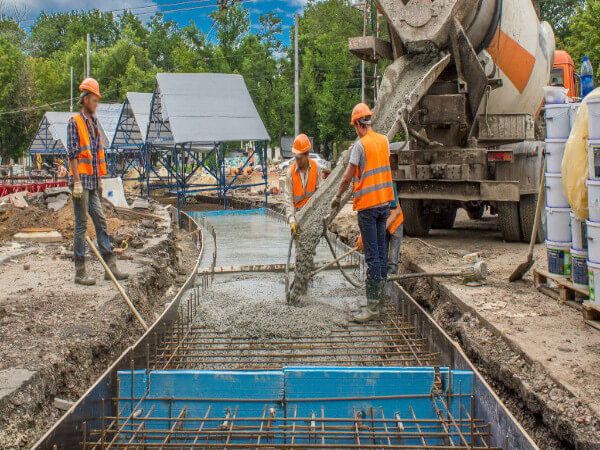Incorporating Hardscaping into your landscape design is a great way to add both function and style. This includes walkways, patios, retaining walls, and fire pits.
Concrete pavers are an excellent choice for garden landscaping projects because they can fit into almost any style. This is especially true when mixed and poured with the right mix.

When building, installing, or upgrading your hardscape, the material you use is key. You need a sturdy and long-lasting material that is also aesthetically pleasing. Concrete is a good choice for both and can be customized to fit any design plan. There are many different types of concrete, however, and it is important to know which one is right for your project.
When working with your landscape professional, they will help you choose the right concrete to fit your needs. Concrete is very versatile and can be stained or textured to create the look you want. In addition, it can be engraved or stenciled to add an additional level of customization.
Another advantage of using concrete for your hardscape is its durability. Specifically, long-lasting concrete is designed to resist weathering and wear over time. This type of concrete is often used in foundations and other load-bearing structures, so it is necessary to be able to withstand the elements.
In addition to concrete, gravel is a common choice for hardscaping projects because it is a cost-effective and durable material. Gravel is typically comprised of a mixture of stones and sand, and it can be shaped to create pathways or patios. It is also easy to maintain and does not require any special tools or equipment. However, it does require consistent resealing to prevent water damage and staining.
Bricks are another popular choice for hardscaping because they are available in a wide variety of sizes, shapes, and colors. They are often stacked to form walls, patios, and walkways in garden areas. They can be installed in a range of ways, including mortared or laid flush with the ground. Bricks are a durable and attractive option for any hardscaping project, but they do require more maintenance than other materials.
Choosing the right material for your hardscaping project depends on a number of factors, including the aesthetic you want and how much maintenance is required. Regardless of what you decide, can help you build the outdoor space of your dreams and increase your home’s curb appeal at the same time.
You can help yourself land your first customers by using your personal network and leveraging the power of social media. Let everyone in your personal and professional networks know you have launched a landscaping business and ask them to spread the word. They may even refer you to their friends and acquaintances, helping you find your first paying customers.
Hardscaping offers many benefits, including increased curb appeal and a comfortable outdoor space for entertaining and relaxing. However, it requires careful planning and installation, as the materials used in this type of work can be expensive. In addition, regular maintenance is important to keep the surfaces looking their best. Removing unwanted spills and messes prevents staining and protects the surface. Adding a protective seal also helps extend the life of hardscaping materials.
A well-planned hardscaping project can provide both aesthetic and practical benefits to your yard. Concrete patios, for example, are easy to sweep and require less maintenance than other types of patios that can collect dust. They also offer a stylish alternative to grass while providing a comfortable place to relax or entertain guests. Hardscapes like fences, gates, and pathways can add privacy to your backyard while defining your property line. Retaining walls and stone steps can level uneven slopes while improving drainage and preventing standing water, mildew, and other issues. They can also serve as a barrier to prevent unwanted pests from entering your property.
Taking care of your hardscaping is just as important as taking care of the plants and flowers that make up your landscaping. Regularly sweeping or vacuuming your hardscaped areas will remove dirt, leaves, and other debris that can cause staining. A pressure washer can also be used to clean your hardscapes, but it is essential to use the appropriate settings for your surface to avoid damage. It is also a good idea to clean up any messes and spills as soon as they happen to keep mold, mildew, algae, and other unwanted growth at bay.
If you choose to install a pool, fountain, or other water feature, it’s important to consider the environmental impact. Most water features require a hardscape to retain the water rather than allowing it to drain into the soil, which can increase erosion and runoff that taxes municipal treatment systems and washes pollutants into local waterways. However, permeable pavers and other sustainable hardscapes can help to reduce this problem.
Another reason to take care of your hardscaping is that it can actually save you money in the long run. Because it requires little to no maintenance, a hardscaped area uses far less energy than a traditional lawn or garden. This can save you hundreds of dollars annually in fuel costs for lawn mowers, weed wackers, leaf blowers, and other garden equipment. It can even reduce the amount of salt needed to de-ice walkways and driveways in areas with cold winter weather.




